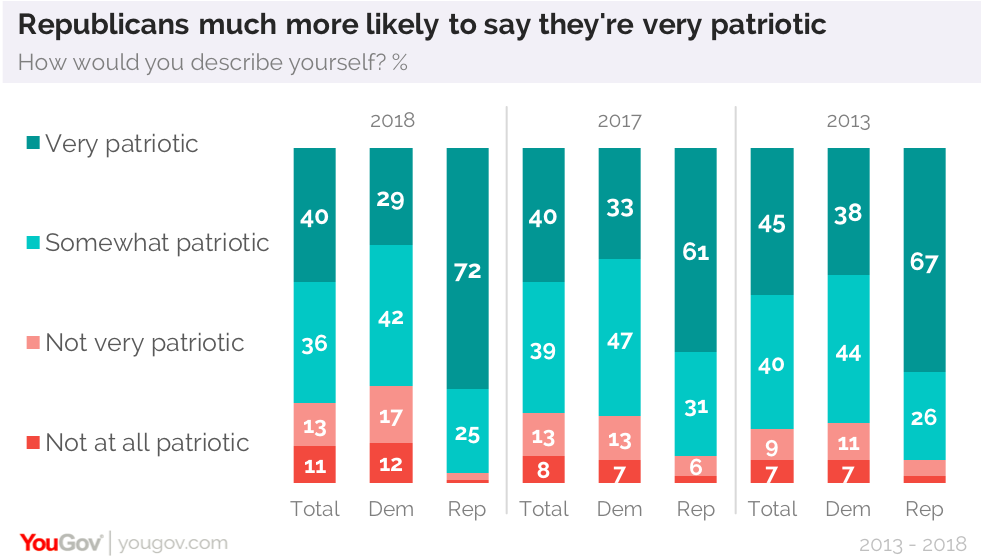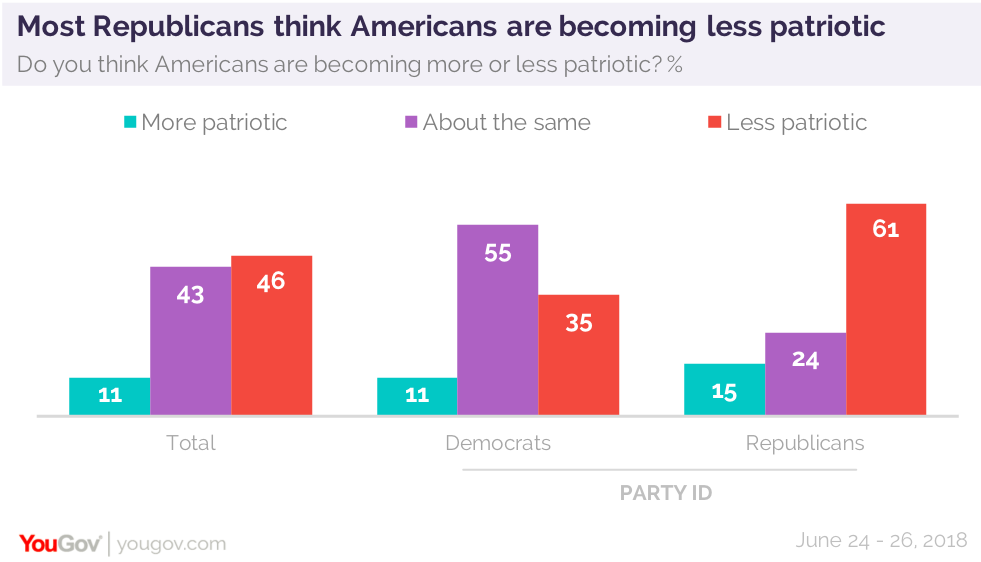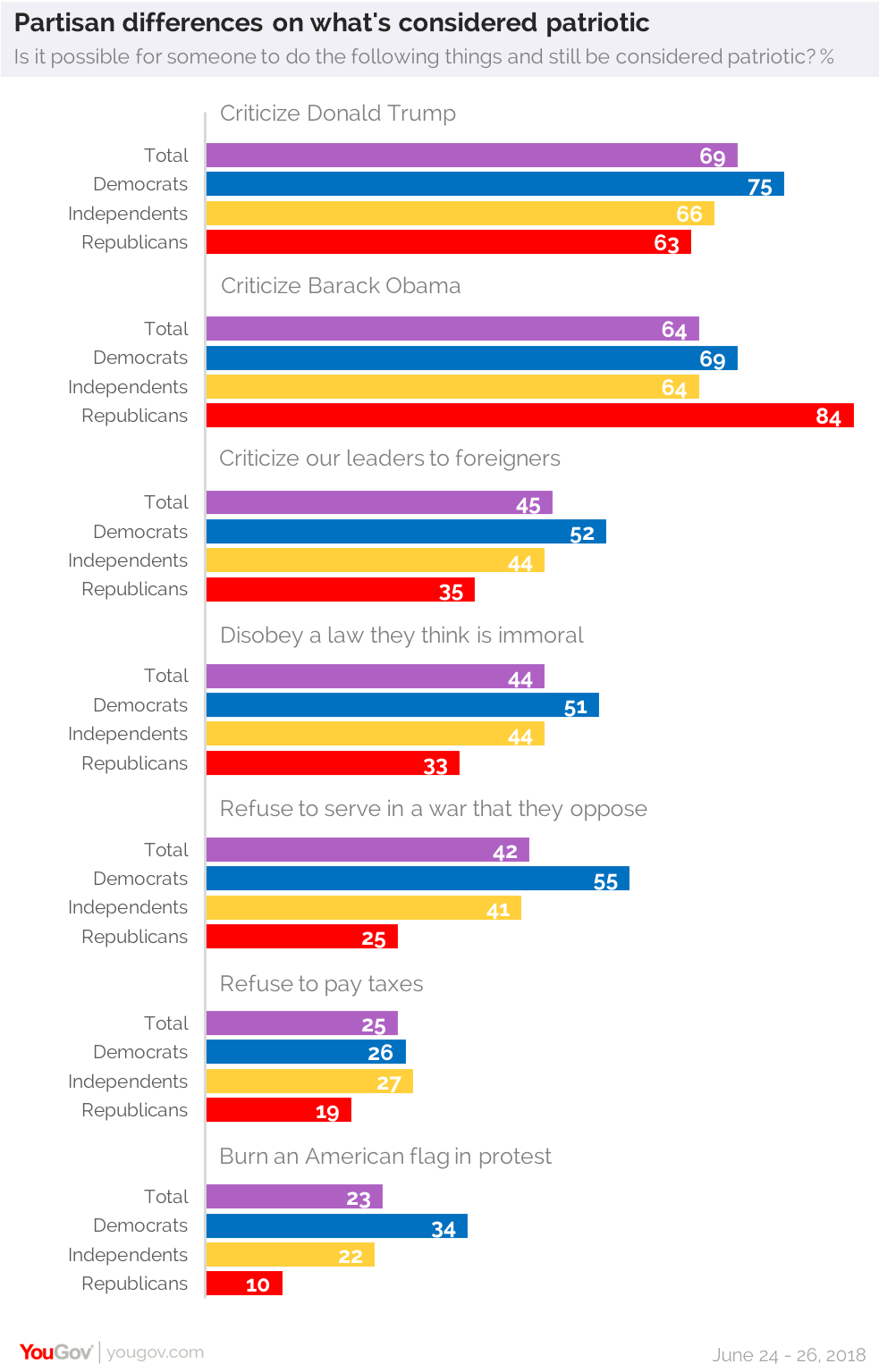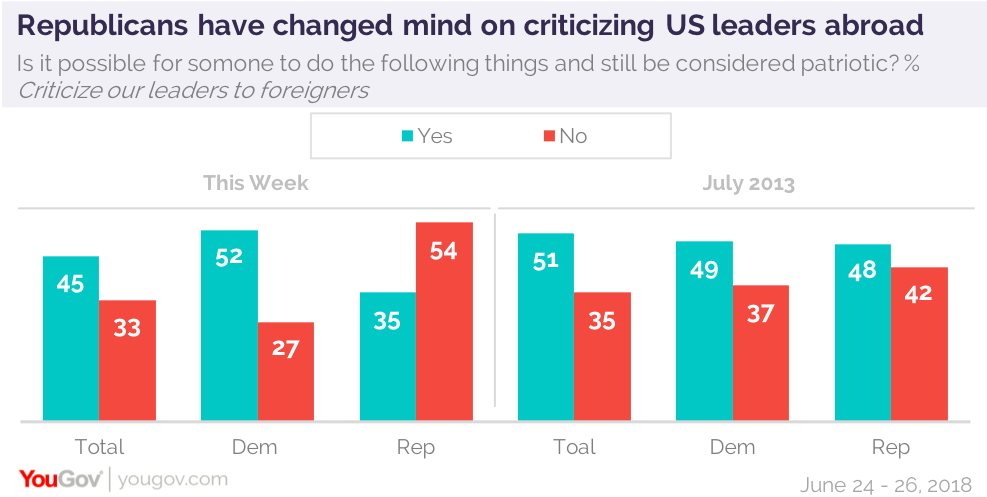76% of Americans say they're at least somewhat patriotic
Americans like to feel patriotic. Four in ten in the latest Economist/YouGov Poll say they are “very patriotic.” Three in four are at least “somewhat” patriotic. But what does being “patriotic” mean?
First of all, it makes a difference if you are a Republican. Republicans are more than twice as likely as Democrats or independents to call themselves very patriotic, and the gap is widening. Just under a third of Democrats and independents say they are “not very” or “not at all” patriotic.

Americans are nearly as likely as they were five years ago to call themselves patriotic. The number saying they are not very or not at all patriotic has risen only a bit since then.
Americans judge the level of patriotism in the country differently, depending on their partisanship. Republicans are almost twice as likely as Democrats to see the level of patriotism among all Americans dropping. Most Democrats say it hasn’t changed lately.

For many, it’s a cry for the country to go back to the way it was. The older one is, the more likely a person is to think the level of patriotism has dropped. Six in ten of those 65 and older say the country is becoming less patriotic. (Older Americans are also more likely than younger adults to call themselves Republicans, and are the only age group in which Republicans outnumber Democrats.) But half of those between 45 and 64 also think the level of patriotism in the country has declined.
But what does patriotism mean? There are many Americans who agree that one can criticize the government, and even disobey laws one disagrees with or think are immoral. But in nearly all cases, Democrats are more willing than Republicans to allow these actions.

There is only one thing on the list that more Republicans believe one can do and still be considered patriotic: criticize former Democratic President Barack Obama. Both Democrats and Republicans think criticism of President Obama is acceptable for patriots, but the GOP percentage saying this has increased nine points in the last year. Majorities of both Republicans and Democrats believe a person can criticize Donald Trump and still be patriotic, too, and those partisan percentages haven’t changed much in the last year.
But if that criticism of American leaders is made outside the US, partisans disagree. A majority of Democrats say you can be patriotic if you criticize US leaders to foreigners, a majority of Republicans’ disagree.

This marks a change for Republicans since 2013, when there was a Democratic President. Then, half of Republicans believed one could be patriotic and criticize the country’s leaders abroad, and there was no difference in the opinions of Republicans and Democrats.
The gap in opinion between Republicans and Democrats is especially large when it comes to disobeying laws and refusing to serve in the military if one thinks the law or the war is unjust. But majorities in both parties reject a patriot refusing to pay taxes.
Flag burning, seen during protests against the Vietnam War, also shows a large party difference, though Democrats are still negative on whether a patriotic person can burn the flag. (Republicans and Democrats also have broad disagreements of football players “taking a knee” in protest during the playing of the National Anthem.)
Despite their political differences on what patriotism means – and whether or not they are patriotic themselves – Republicans and Democrats will be doing pretty much the same thing on the Fourth of July this year. It’s a day to stay home and relax, to get together with family and friends and maybe have a cookout. A few more Republicans might attend a fireworks display, a few more Democrats go to a parade. But those differences are extremely small.
Read more topline and tables results here.
Image: Getty







